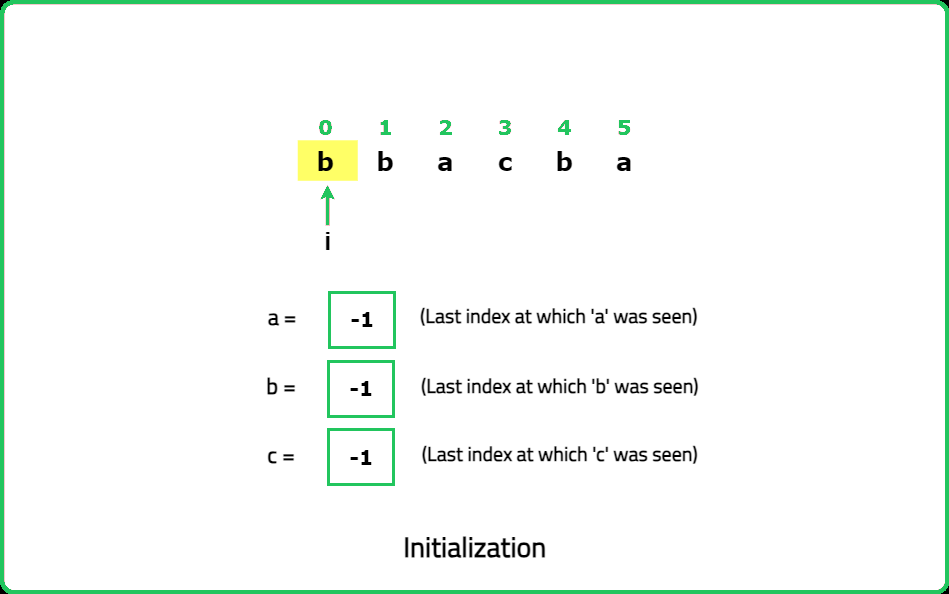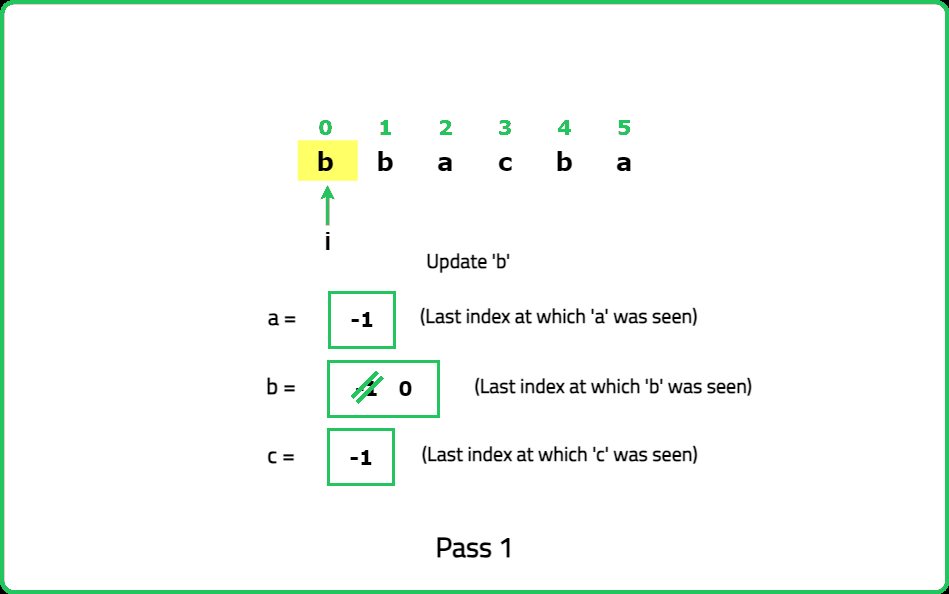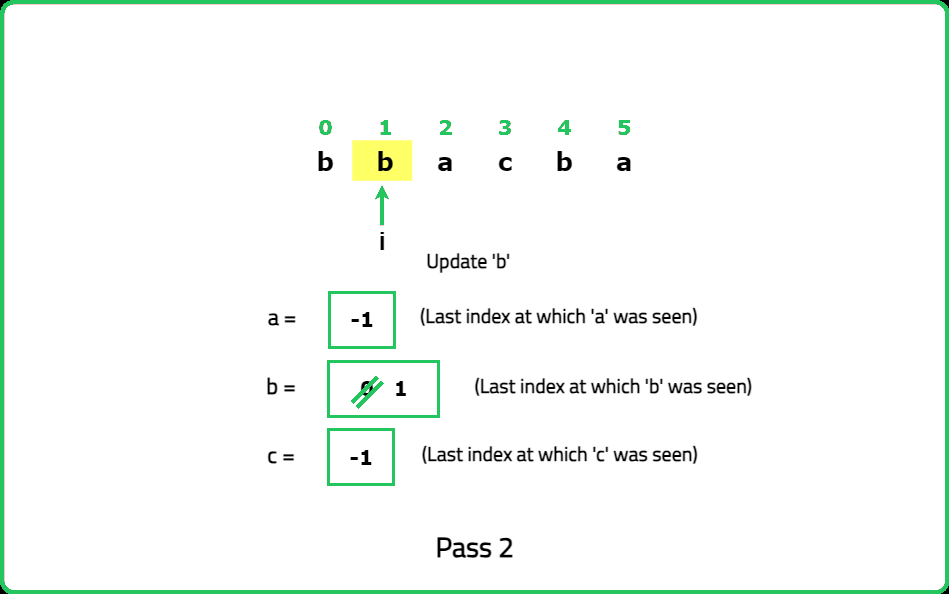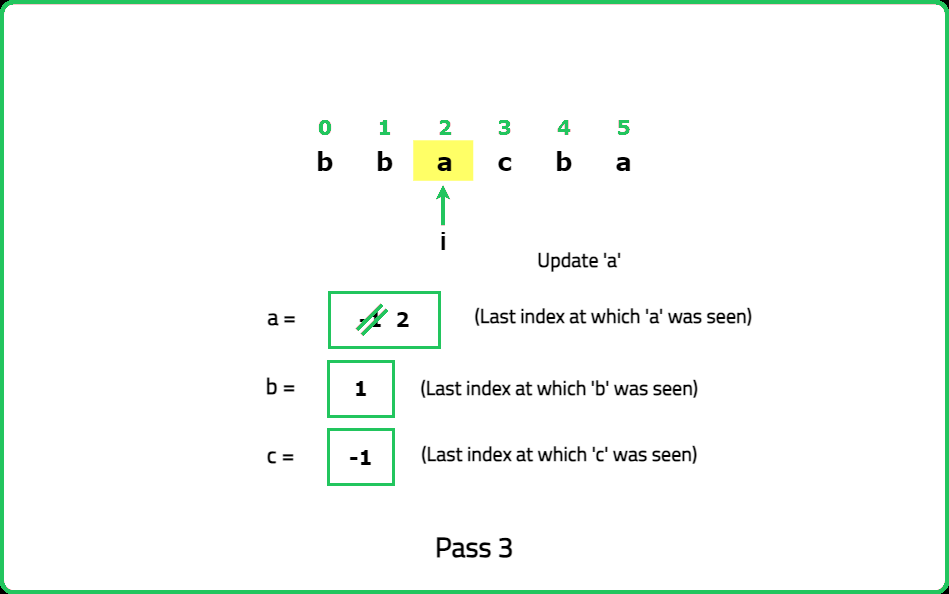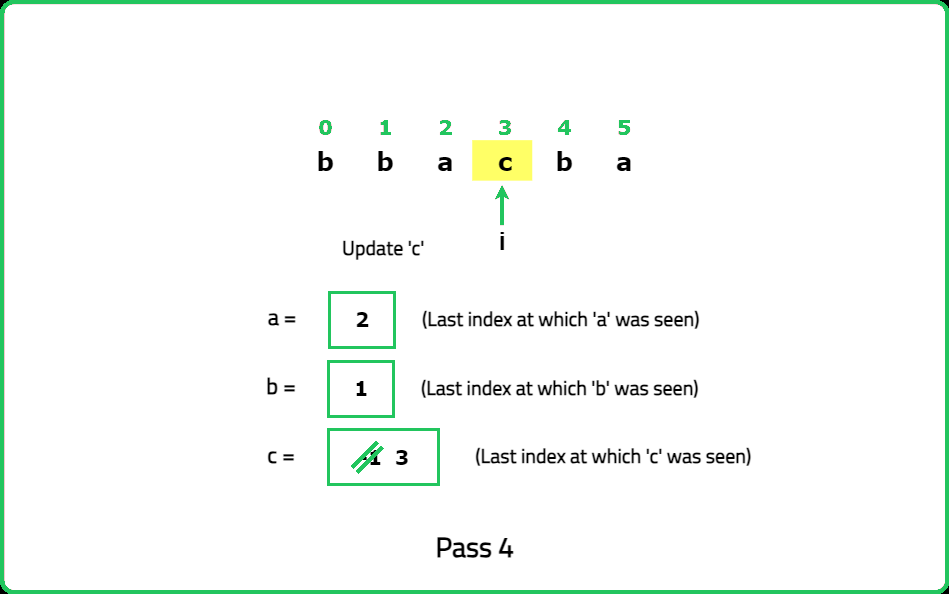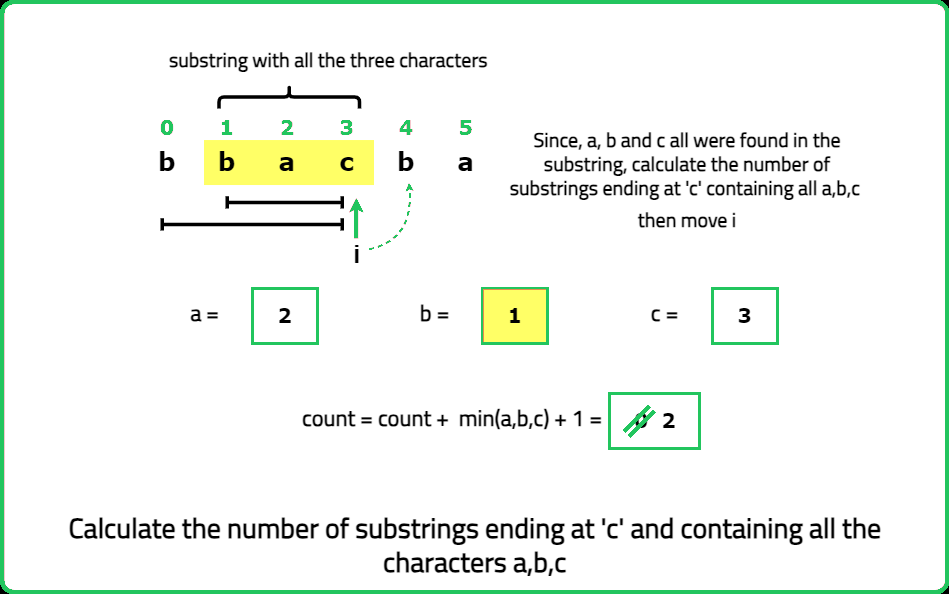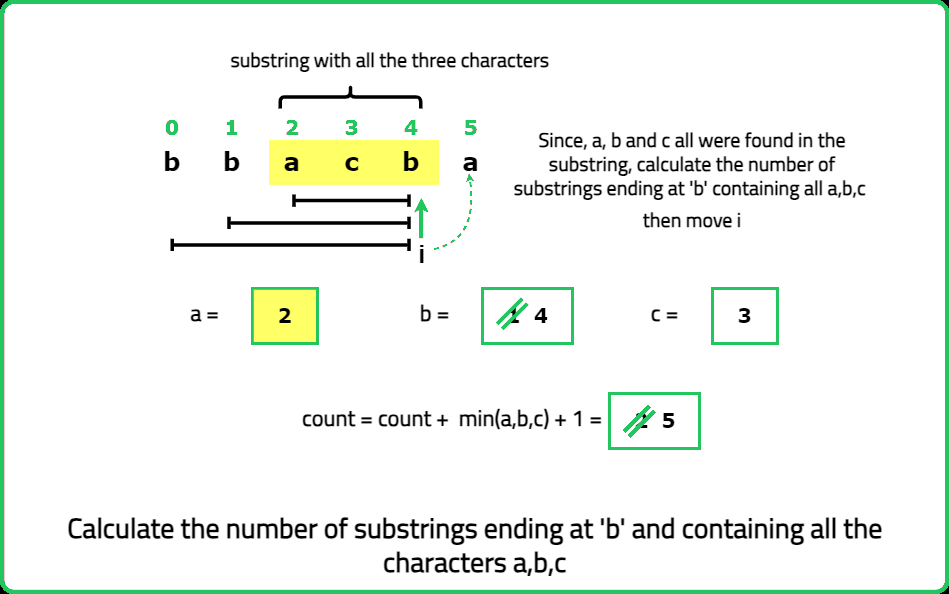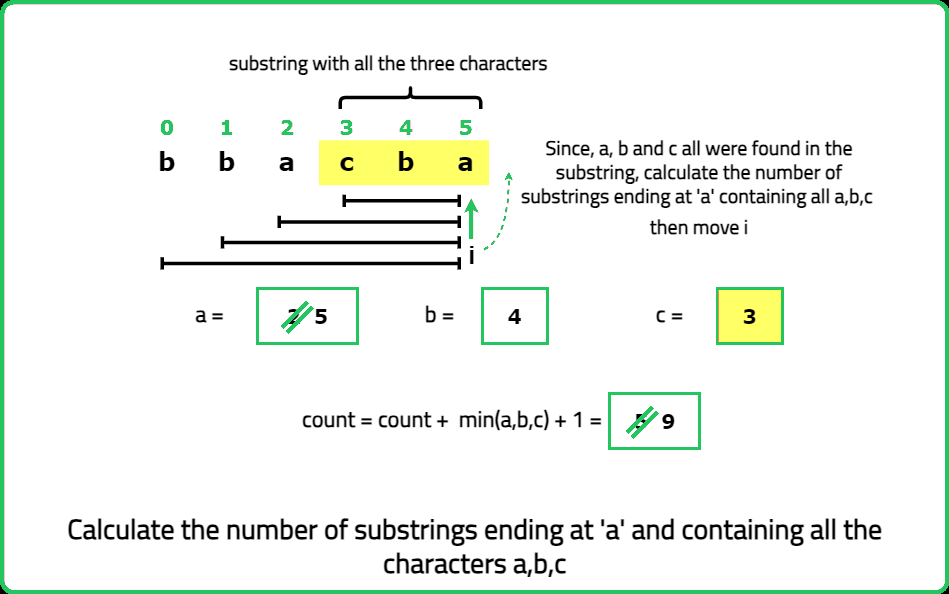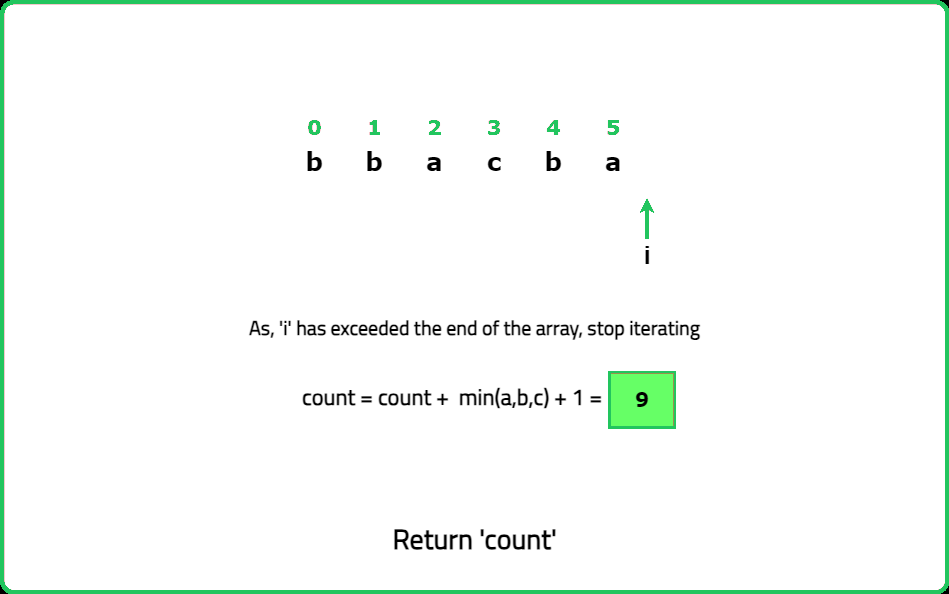Number of Substrings Containing All Three Characters
Sliding Window / 2 Pointer
Counting Subarrays / Substrings Problems
Hard
- This type of problem is closely related to the concept of string manipulation and substring search operations, which are fundamental to many real-world applications
- For instance, web browsers use similar algorithms to perform quick text search functionality
- Furthermore, text editors, word processors, and Integrated Development Environments (IDE's) often have 'Find' or 'Search' features that essentially solve this problem, scanning through the text to find sequences that match the user's input
- Counting occurrences can also be relevant in text analysis or processing tasks in natural language understanding, where we might need to quantify the instances of a certain word or character sequence in a document
Given a string s , consisting only of characters 'a' , 'b' , 'c'.Find the number of substrings that contain at least one occurrence of all these characters 'a' , 'b' , 'c'.
Examples:
Input : s = "abcba"
Output : 5
Explanation : The substrings containing at least one occurrence of the characters 'a' , 'b' , 'c' are "abc" , "abcb" , "abcba" , "bcba" , "cba".
Input : s = "ccabcc"
Output : 8
Explanation : The substrings containing at least one occurrence of the characters 'a' , 'b' , 'c' are "ccab" , "ccabc" , "ccabcc" , "cab" , "cabc" , "cabcc" , "abc" , "abcc".
Input : s = "abccba"
Constraints
- 1 <= s.length <= 5*104
- s consist only of characters 'a' , 'b' , 'c'.
Hints
- Use a sliding window to determine all substrings that contain at least one occurrence of the characters 'a', 'b', and 'c'.
- Maintain a frequency map (or array of size 3, one for each of 'a', 'b', and 'c') to track the count of each character in the current window.
Company Tags
Micron Technology
ARM
Optum
Ernst & Young
Western Digital
Flipkart
Ubisoft
Salesforce
Roche
Dropbox
Epic Games
Goldman Sachs
Epic Systems
Zomato
Philips Healthcare
McKinsey & Company
Splunk
Intel
Cloudflare
Snowflake
Roblox
NVIDIA
Instacart
eBay
Activision Blizzard
Google
Microsoft
Amazon
Meta
Apple
Netflix
Adobe
